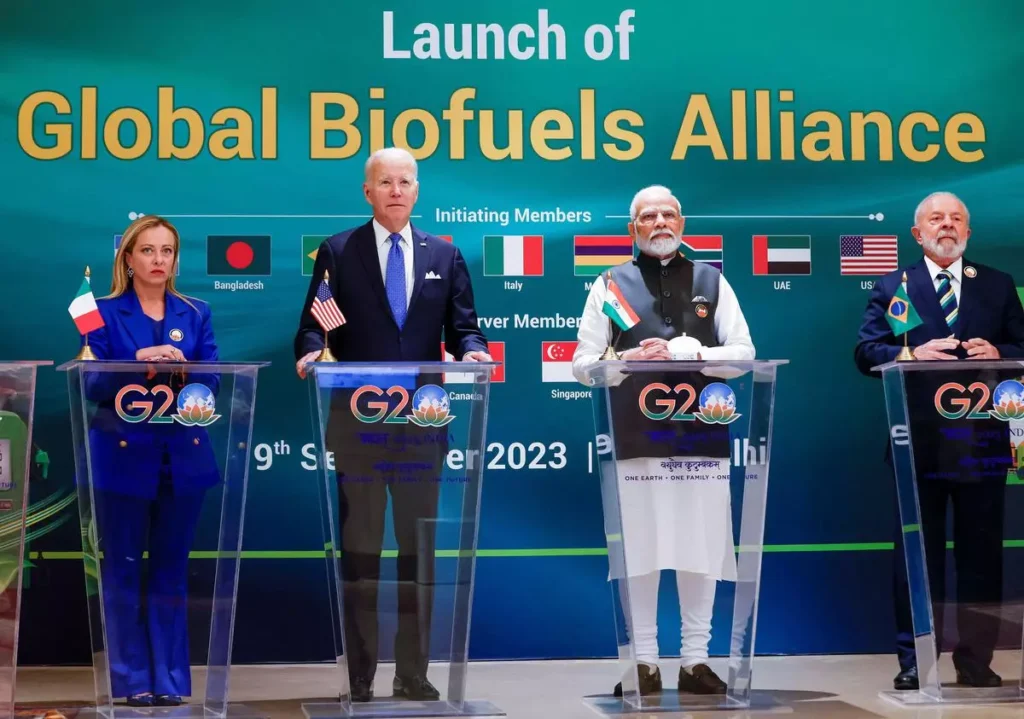In a groundbreaking move aimed at accelerating the global shift towards cleaner energy sources, India announced the launch of a Global Biofuel Alliance during the G20 summit in New Delhi. This strategic initiative, spearheaded by India and joined by founding members the United States and Brazil, holds the promise of revolutionizing the energy landscape by promoting the use of eco-friendly biofuels derived from various sources, including plant and animal waste.
Prime Minister Narendra Modi, addressing leaders from the Group of 20 major economies, passionately introduced the Global Biofuel Alliance. He extended an open invitation to nations worldwide, stating, “We are launching the Global Biofuel Alliance, and India warmly invites all of you to be part of this transformative journey.”
This visionary move echoes the success of the International Solar Alliance initiated by New Delhi and Paris in 2015, which aimed to make clean and affordable solar energy accessible to all.
According to the International Energy Agency’s July report, global sustainable biofuel production must triple by 2030 to set the world’s energy system on a course towards achieving net-zero emissions by 2050.
Table of Contents
Key Highlights
- India’s commitment to becoming carbon-neutral by 2070.
- Plans to double nationwide ethanol blending in gasoline to 20% by 2025.
- Development of 12 bio-refineries for producing biofuels from crop stubble, plant waste, and municipal solid waste.
Driving Clean Energy Revolution
India, the world’s third-largest oil importer and consumer, currently depends on imports for approximately 85% of its crude oil requirements. However, the nation is actively working to reduce this dependency and boost its production of biofuels, a sustainable alternative.
India’s ambitious goal is to achieve carbon neutrality by 2070, and it is taking concrete steps to incorporate biofuels into its transportation sector. In a significant move, the country has accelerated its ethanol blending target, aiming to reach 20% by 2025, five years ahead of the initial schedule.
Oil Minister Hardeep Singh Puri emphasized that the Global Biofuel Alliance would promote global biofuel trade. It will also develop robust knowledge-sharing policies and provide technical support to national biofuel programs worldwide.
Conclusion
India’s launch of the Global Biofuel Alliance at the G20 summit is a significant step towards combating climate change and fostering a sustainable future. As the world strives to achieve net-zero emissions, this alliance is poised to be a game-changer in promoting cleaner energy sources and reducing our dependence on fossil fuels.
